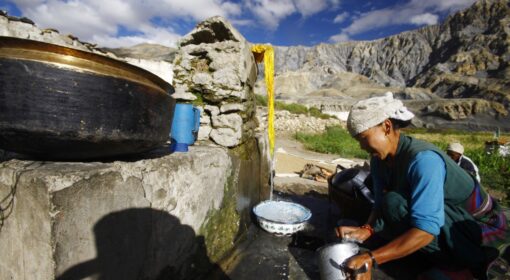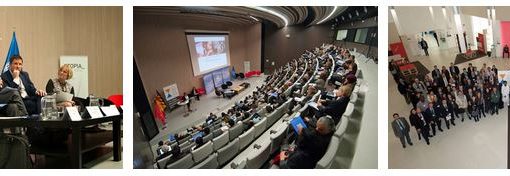The 1977 UN Conference on Water, Mar del Plata, launched the era of collective action to address water-related issues. 33 years later, global-level assessments still paint a bleak picture: 2.6 billion still can’t access improved sanitation facilities, and 900 million are still bereft of improved water sources. Between 1997 and 2008, the lack of results has coincided with fall in aid commitments for water and sanitation, down from 8% to 5% of global development aid.
In a recent article, Alan Nicol, Lyla Mehta and Jeremy Allouche (Institute of Development Studies, UK) analyse the history of the global collective action on water, warning that ”further (collective) failure is not an option.” They are especially critical of the 1992 International Conference on Water and the Environment, Dublin, which promoted the view that water should be recognised as an ‘economic good’ in order to encourage its efficient use and conservation. This view translated into policies encouraging the entry of the private sector in service provision which was, however, unable to account for the politics and social values associated with water.
“Not surprisingly government had to pick up the initiative again… Under the new watchword ‘governance’ there has been resurgence in state action, particularly in delivering against the Millennium Development Goals,” point out Nicol et al.
In a series of articles for IUCN, journalist James G. Workman fleshes out a framework for water management that places economic value back in water. He argues that how we see water as a resource suffers from three paradoxes:
- Paradox of Value: “Without water humans can’t exist…yet when we see and treat water as a free good, we waste it.”
- Paradox of Efficiency: Conservation creates spare water; the increased availability lowers cost; lower costs jack up demand and new consumers– bringing us back to square one
- Paradox of Monopoly: To thrive, water utilities must encourage and reward waste.
Quoting Dick Cheney (!), Workman proposes that resolving the paradoxes requires adopting a new outlook- one where greed is the motivation for conservation, instead of virtuous sacrifice by the water-rich. In his system, ‘H2Ownership,’ water utilities would convert physical water into virtual credits; allocate equal number of credits to every account (household/industry); and let them trade what they don’t consume with each other.
This, claims Workman, would lock people into a system with an incentive to conserve that bets on them being looking to profit (more likely), rather than being virtuous (less likely).
Workman’s proposals are specific to the urban context, and seem to focus on the scarcity aspect of the ‘water-crisis.’ However, its core elements place it firmly in opposition to current wisdom which seems to recommend collective action, understood as the interaction between institutions (Governments, Multilaterals, NGOs, Civil Society) driven by shared goals (MDGs and others) and converging objectives.
Is the water-credits proposition too simplistic? Does it take into account the unique nature of water as a resource, and the sensitivities that surround it? Does this amount to unleashing the ‘Market’ into yet another aspect of our lives? Isn’t that a beast that is known to go out of control?
We welcome you to share your views in the Comments section below.



